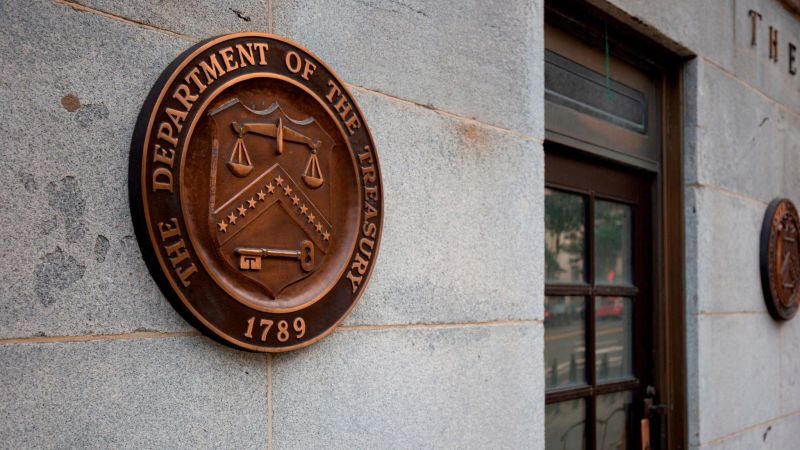On December 8th, the U.S. Department of State announced new sanctions targeting 11 officials from the Syrian regime. These measures apply to both current and former officials, as well as other individuals, citing their “involvement in committing humanitarian crimes” as the basis for the restrictions. The statement highlighted that these individuals hinder, obstruct, or prevent efforts aimed at facilitating a political resolution to the Syrian conflict, along with impeding the safe return of refugees and others to Syria.
The U.S. decision also includes imposing restrictions on Syrian officials allegedly involved in the production or trafficking of Captagon. While the American decision carries significant implications for the internal situation in Syria, it prompts questions about its timing and underlying motives.
Different Contexts: The American sanctions imposed on Damascus are situated within the framework of the current U.S. policy towards parties that Washington accuses of displaying unwavering support for Israel in the ongoing conflict in Gaza. On the eve of “Operation Flood of Al-Aqsa,” the Syrian Ministry of Foreign Affairs issued a statement affirming that “the resistance factions in the occupied Palestinian territories have achieved a new milestone on the path to securing established and non-negotiable Palestinian rights.”
Concurrently, the American sanctions coincide with escalating tensions on the Syrian front. U.S. forces and the “international coalition” have faced drone and missile attacks in Iraq and Syria, totaling at least 74 attacks since October 17th. Meanwhile, Israel has conducted airstrikes on airports in Damascus and Aleppo in recent weeks, claiming to aim at disrupting the Iranian supply line to militias loyal to Tehran and Hezbollah. This is especially pertinent given the escalating developments in Gaza and the increasing military confrontations between Hezbollah and Israeli forces.
In a related development, the American sanctions coincided with a British decision on December 8, 2023, to impose sanctions on eight officials from the Syrian regime, including six ministers in the government and several military leaders. These sanctions were levied based on accusations of “committing crimes against civilians and military personnel after the outbreak of the Syrian revolution, as well as against activists and participants in peaceful protests in the country.”
Conversely, these new sanctions followed a decision by the U.S. Treasury Department on August 8th of the previous year to lift the freeze on sanctions that Washington had imposed on the Syrian regime. The sanctions had been temporarily suspended due to the earthquake that occurred in southern Turkey and northwest Syria on February 6th of the same year.
Multiple Motivations
There are several motivations behind Washington’s decision to impose new sanctions on the Syrian regime, which can be addressed as follows:
- Seeking New Leverage: Washington has consistently aimed to bolster its influence over the Syrian regime and its affiliated parties and militias. This objective is pursued by identifying fresh sources of pressure that can be employed in its engagements with the evolving dynamics of the Syrian landscape. It is noteworthy that on June 20th of the previous year, the U.S. Congress introduced a resolution urging the U.S. administration to establish an international mechanism dedicated to “holding the Syrian regime accountable for war crimes committed during the past period.”
- Targeting and Restricting the Captagon Trade: It appears that, behind its recent sanctions, Washington aims to curtail the drug trade, which it accuses the Syrian regime of promoting and expanding. In this context, a new law issued by Washington in late December 2022, known as “Captagon,” identifies the Syrian regime as one of the contributors to the drug exportation problem. This law is designed to weaken and impede the drug trafficking network. The U.S. Department of State attributed the imposition of sanctions on individuals linked to the Syrian regime, accusing them of involvement in the drug trade that has become a lucrative source of revenue for the network.
- Hindering Syrian Engagement with the Outside: The timing of these sanctions suggests an intention to obstruct efforts aimed at enhancing Syrian engagement with the outside world, particularly in initiatives supporting rapprochement between Turkey and Syria. On November 29th of the previous year, Russia, through its ambassador to Turkey, Alexei Yerkhov, expressed readiness to exert all efforts to develop relations between Turkey and Syria. This includes resuming talks that have been stagnant since the June 20th and 21st meetings of the Astana format.
While the impact of the U.S. sanctions on the Syrian regime may be limited in influencing this diplomatic track, they are intended to send a message, specifically to Turkey, that the cost of such efforts could be high.
- Responding to the Targeting of the SDF: The American sanctions are closely linked to Washington’s aim to retaliate against attacks carried out by the Syrian regime on the “Syrian Democratic Forces” (SDF), a local ally to Washington in the war against “ISIS.” This objective holds particular significance for the United States currently, given the escalating attacks on its military bases in Syrian territory, stemming from its support for Israel in its conflict with Gaza.
On November 18th of the previous year, the SDF accused the Syrian regime and its intelligence of coordinating with Turkey in operations targeting its leaders and elements affiliated with the “Kurdistan Workers’ Party.” It is noteworthy that the Syrian regime and Iranian-backed militias had previously launched an attack on SDF positions on October 29th, raising concerns for the United States, which considers the SDF a strategic anchor for its presence in Syria and a crucial partner in the fight against “ISIS.”
- Neutralizing the Syrian Front in the Gaza War: Through this move, Washington appears to aim at neutralizing any potential negative repercussions from the Syrian side towards Israel amid the escalating conflict in Gaza. Despite the U.S. conviction that Damascus may not currently seek involvement in this war, the prolonged duration of military operations in Gaza and the absence of a decisive outcome may disrupt calculations and increase the possibilities of expanding the scope of the conflict.
In conclusion, it can be said that the recent American sanctions on the Syrian regime may have multiple negative implications on both political and economic levels. They will weaken the Syrian government’s ability to address the noticeable deterioration in living conditions. However, simultaneously, they may generate reverse effects by strengthening Russian and Iranian influence in the Syrian interior.


